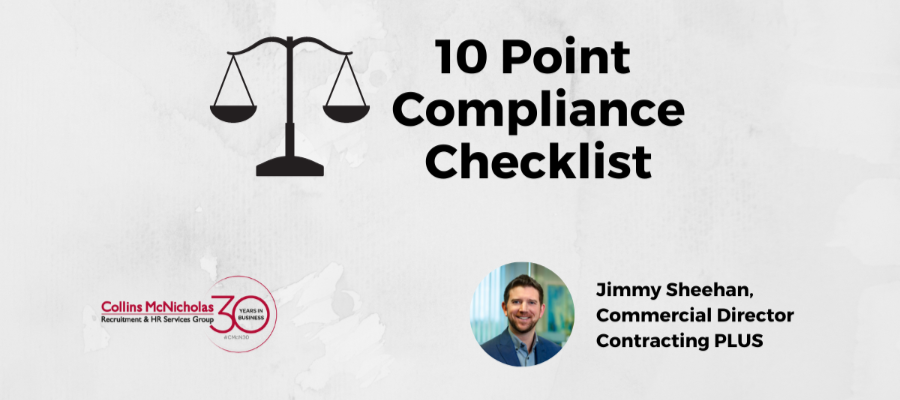It is perfectly safe for companies to engage independent professionals, however there is a responsibility on those tasked with compliance to ensure it is a bona-fide independent engagement.
The following is not a comprehensive list of what checks can be made for contractors, but certainly will go a long way to being compliant.
No Direction & Control
The Contractor does not generally need training or supervision but is focussed on the delivery of their service. Companies should ensure they do not undermine this key aspect of engaging in what is essentially a B2B transaction.
Has their own Company
The Contractor is operating through a limited company structure (I highly recommend avoiding in engaging sole traders). The company is tax compliant and has its own insurances. The company might have a website or marketing material but this isn’t essential. The contractor might possibly work for multiple clients simultaneously.
Skill & Expertise
The Contractor has a CV which speaks to their skill or expertise in a certain area. They are responsible for maintaining, updating and building on their existing knowledge. The client company where they work, or the recruitment firm that places them there, has no obligation to provide training or upskilling.
Contract for Services / Statement of Works
A Contract for Services should clearly outline what professional
service the Contractor will deliver. She will be paid on delivery of the service, or perhaps on a milestone basis or alternatively a day rate. This varies quite a bit in practice.
Timetables
Contractors are free to set their own working hours. Work can be performed either on or off the client site – though Contractors will often tend to work on a client site, especially where health & safety requires it or if liaising with other stakeholders on-site makes the working process smoother for them.
Delegation
The delivery of the service the Contractor is engaged to provide is what is at the centre of the agreement. However, in certain circumstances, and with the prior approval of the client, the Contractor might ask another professional to assist in the delivery. This is normally included in the contract and can only be triggered by the written approval of the company.
Company Benefits
The Contractor has no entitlement to typical company benefits such as pensions or health insurance. Where employees have access to ‘perks’ at a company premises such as free parking or subsidised canteen meals, a Contractor should have a charge applied for these, albeit nominal.
Payment for Services
Contractors have a standard billing rate for their services. Some industries prefer this to be in hours but typically a day-rate or a project-rate is quoted. Where a project rate is quoted, the contractor gains if they complete the project in less time than they had budgeted for, but they also own the risk if the project takes longer. Day rates and approximate project times tend to be the most popular option though.
Taxation
The Contractor is responsible for paying all their own taxes, both corporate and personal. There is no recourse to the end-client or to the recruitment firm who might have engaged the Contractor on behalf of the end client.
Internal Operations
How the Contractor is communicated with has a bearing on whether the Revenue Commissioners might deem them to be truly independent or if they are in fact a disguised employee. Where your business relies on the ongoing use of iPro’s we recommend a more extensive classification process.
Contracting PLUS provide a compliance pack which includes:
A signed contract
Tax Clearance confirmation for the company through which the Contractor operates
Anti Money Laundering (AML) Compliance
Company Insurances including Professional Indemnity, Public Liability and Employers Liability.
An undertaking to ensure the company remains compliant with all its statutory filing requirements.
What Contracting PLUS does for the Independent Contractor
We are the accountant and tax advisor to the Independent Professional. We work with those who already have, or want their own personal limited company. For those who don’t want their own company, we place them as a director in one of our Umbrella Companies. We look after contracts, invoicing and bookkeeping, payroll, claiming business expenses, etc.
We provide company insurances and a Dedicated Accountant who acts as one point of contact. Our overall aim is to give the individual the best experience possible while working with them to build their financial wealth.
This blog was originally published by Jimmy Sheehan FCPA on 24th June 2020 on LinkedIn. Jimmy is Commercial Director at Contracting PLUS, Ireland’s largest and most experienced provider of tax, accounting, financial and wealth management solutions for Contractors and Owner-Director companies.




